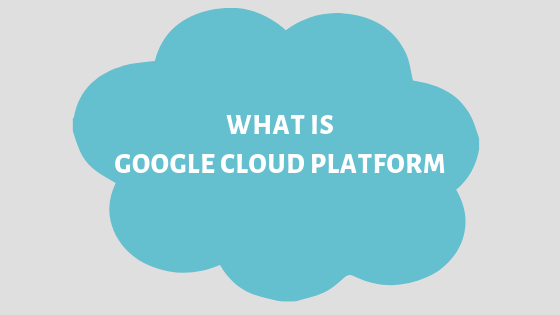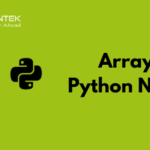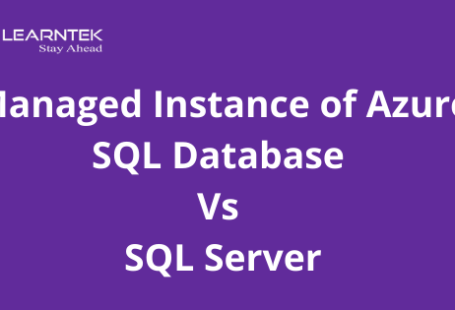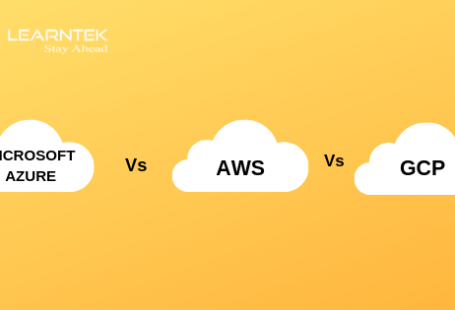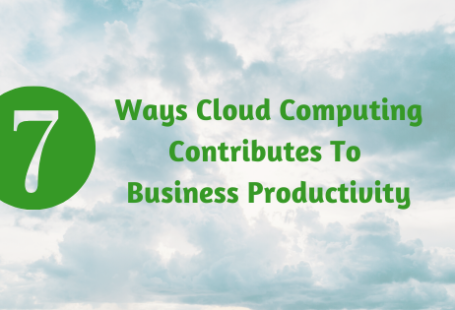Google Cloud Platform
Introduction:
The Google Cloud Platform (GCP) is a suite of cloud services hosted on Google’s infrastructure. Google Cloud Platform is a suite of public cloud computing services offered by Google. Google Cloud Platform, as the name implies, is a cloud computing platform that provides infrastructure tools and services for users to build applications and services on top of. Google Cloud Platform (GCP) is a portfolio of cloud computing services that grew around the initial Google App Engine framework for hosting web applications from Google’s data centers. Since the launch of Google App Engine in 2008, GCP has grown into one of the premier cloud computing platforms on the market, though it still trails Amazon Web Services (AWS) and Microsoft Azure in terms of market share. Google Cloud Platform (GCP) includes a range of hosted services for compute, storage and application development that run on Google hardware. Google Cloud Platform services can be accessed by software developers, cloud administrators and other enterprises IT professionals over the public internet or through a dedicated network connection. From computing and storage to data analytics, machine learning, and networking, GCP offers a wide variety of services and APIs that can be integrated with any cloud-computing application or project—be it personal or enterprise-grade.
Products offered form Google Cloud:
Google Cloud Platform products span the following categories:
| 1. | Artificial intelligence & Machine Learning | AI Hub (beta), Cloud AutoML (beta), Cloud TPU, Cloud Machine Learning Engine, Diagflow Enterprise Edition, Cloud Natural Language, Cloud Speech-to-Text, Cloud Text-to-Speech, Cloud Translation, Cloud Vision, Cloud Video Intelligence, Cloud Inference API (alpha), and more |
| 2. | API management | API Analytics, API Monetization, Cloud Endpoints, Developer Portal, Cloud Healthcare API
|
| 3. | Compute | Compute Engine, Shielded VMs, Container Security, App Engine, Cloud Functions, GPU, and more
|
| 4. | Data Analytics | BigQuery, Cloud Dataflow, Cloud Dataproc, Cloud Datalab, Cloud Dataprep, Cloud Composer, and more
|
| 5. | Databases | Cloud SQL, Cloud Bigtable, Cloud Spanner, Cloud Datastore, Cloud Memorystore
|
| 6. | Developer Tools | Cloud SDK, Container Registry, Cloud Build, Cloud Source Repositories, Cloud Tasks, and more, as well as Cloud Tools for IntelliJ, PowerShell, Visual Studio, and Eclipse
|
| 7. | Internet of Things (IoT) | Cloud IoT Core, Edge TPU (beta)
|
| 8. | Hybrid and multi-cloud | Google Kubernetes Engine, GKE On-Prem, Istio on GKE (beta), Anthos Config Management, Serverless, Stackdriver, and more
|
| 9. | Management Tools | Stackdriver, Monitoring, Trace, Logging, Debugger, Cloud Console, and more
|
| 10. | Media | Anvato, Zync Render
|
| 11. | Migration | Cloud Data Transfer, Transfer Appliance, BigQuery Data Transfer Service, Velostrata, VM Migration, and more
|
| 12. | Networking | Virtual Private Cloud (VPC), Cloud Load Balancing, Cloud Armor, Cloud CDN, Cloud NAT, Cloud Interconnect, Cloud VPN, Cloud DNS, Network Service Tiers, Network Telemetry
|
| 13. | Security | Access Transparency, Cloud Identity, Cloud Data Loss Prevention, Cloud Key Management Service, Cloud Security Scanner, and more
|
| 14. | Storage | Cloud Storage, Persistent Disk, Cloud Filestore, and more
|
When to Use Google Cloud Platform:
- Developers building cloud-native Web or mobile applications are often drawn to Google Cloud Platform, particularly the App Engine PaaS.
- When start-ups looking to scale rapidly, the cloud computing service’s commitment to performance, innovation, openness, and low prices make it popular.
- When it is difficult to estimate and compare public cloud prices, Google’s commitment to price leadership make it a good choice for budget-conscious organizations of all sizes, and certainly for hybrid IT users.
- Google offers strong capabilities in big data analytics, machine learning, and artificial intelligence.
- It had created and/or contributed to many of the most popular open-source projects in this area, and it infuses its cloud offerings with that expertise.
- Those big data capabilities are augmented by Google’s inexpensive cloud storage, which makes this cloud platform cost-effective for storing large volumes of data.
- Google is also working to distinguish itself in the area of container technology.
- When looking for cloud-based container tools as Google created Kubernetes, open-source container management solution that is integrated into its cloud, and it also has strong support for Docker.
Features of Google Cloud Platform:
1.Pricing: Google recently shifted its pricing model to include sustained-use discounts and per-minute billing. Billings starts with a 10-minute minimum and bills per minute for the following time.
2.Hosting: The Cloud Platform offers two hosting options: the App Engine, which is their Platform-as-a-Service and Computes Engine as an Infrastructure-as-a-Service.
3.Containers: Containers are especially useful in a PaaS situation because they assist in speeding deployment and scaling apps.
4.Big Data: The Google Cloud Platform offers a full big data solution, but there are two unique tools for big data processing and analysis on Google Cloud Platform. First, BigQuery allows users to run SQL-like queries on terabytes of data. Plus, you can load your data in bulk directly from your Google Cloud Storage. The second tool is Google Cloud Dataflow. Also announced at I/O, Google Cloud Dataflow allows you to create, monitor, and glean insights from a data processing pipeline.
5.Andromeda: Google Cloud Platform networking tools and services are all based on Andromeda, Google’s network virtualization stack.
6.Load Balancing: In June, Google announced the Cloud Platform HTTP Load Balancing to balance the traffic of multiple compute instances across different geographic regions.
7.Cloud Debugger: The Cloud Debugger gives developers the option to assess and debug code in production. Developers can set a watchpoint on a line of code, and any time a server request hits that line of code, they will get all of the variables and parameters of that code.
8.Cloud Trace: Cloud Trace lets you quickly figure out what is causing a performance bottleneck and fix it. The base value add is that it shows you how much time your product is spending processing certain requests.
9.Maintenance: Google does routine testing and regularly send patches, but it also sets all virtual machines to live migrate away from maintenance as it is being performed. Compute Engine automatically migrates your running instance.
10.Cloud Save: The Cloud Save API was announced at the 2014 Google I/O developers conference by Greg DeMichillie, the director of product management on the Google Cloud Platform. Cloud Save is a feature that lets you “save and retrieve per-user information.” It also allows cloud-stored data to be synchronized across devices.
Conclusion:
Google provides other cloud services, which are not strictly part of the Cloud Platform. G Suite, a collection of productivity and collaboration apps, competed with Microsoft Office 365. Firebase is a mobile and web application development platform. Google Cloud Platform is primarily a public cloud provider, though Google has dramatically increased its focus on hybrid and multi-cloud workloads using Anthos, allowing users to manage workloads on GCP and Google Kubernetes Engine as well as on AWS and Azure. Google continues to gain market share among enterprises and will likely remain a strong competitor in the public cloud market.

